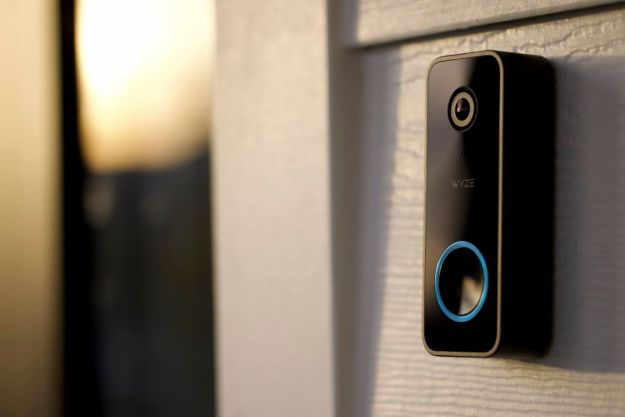When you put a security camera in your home, it’s to keep an eye on things for yourself — not to let hackers peer through the internet into your home.
The possibility that someone is on the other side of that blackened camera lens has long been a concern for many homeowners, and one of the reasons that smart home technology has yet to fully catch on. The potential privacy implications are enormous, but companies have constantly reassured consumers that any vulnerabilities were patched and that users were safe.
All companies except Wyze, apparently.

Sweeping security under the rug
Earlier this year, Wyze discontinued the WyzeCam v1 without much explanation. Not much was made of it; with the availability of the WyzeCam v3, discontinuing an earlier model seemed like an obvious decision.
But on March 29, the security firm Bitdefender revealed another possible reason the company stopped selling the camera: A security vulnerability that made it possible for hackers to access the camera over the internet, make off with your encryption key, and even download the camera’s video feed.
Bitdefender says the issue was brought to Wyze’s attention in 2019. If true, Wyze has known about this security flaw for three years, but consumers have not.
Wyze made a statement that “continued use of the WyzeCam after February 1, 2022, carries increased risk, is discouraged by Wyze, and is entirely at your own risk.” There was no explanation of why the message was sent, nor any acknowledgement of the potential risk consumers have faced over the past several years.

The issue has been patched out of WyzeCam v2 and v3, but that’s not enough. When a security flaw this large is discovered, it should be acknowledged and corrected, even if products need to be recalled.
A summary of the problem in non-technical terms: Hackers could access the camera without verifying their identity by accessing a specific port due to the way SD cards are addressed within the system. According to BleepingComputer, this part of the problem was fixed on September 24, 2019.
Another part was corrected with an update on November 9, 2020, a full 21 months after its initial discovery. The largest part of the exploit — the ability for hackers to access content on your camera’s SD card — wasn’t corrected until January 29, 2022.
Let me point out something important here: These security updates are only available on the WyzeCam v2 and v3. The WyzeCam v1 is still vulnerable and always will be. If you are using one of these devices, you might want to consider unplugging it and tossing it — perhaps from a third-floor window?
It’s not the first time
No device is entirely invulnerable to hackers. Ring has suffered from vulnerabilities in the past, and in November 2021, a smart home network in South Korea experienced one of the most widespread security breaches of any smart device yet.
In 2018, a man claimed a hacker spoke to him through his Nest IQ Cam. The difference is this hacker warned the man that his device was vulnerable and suggested security improvements, then apologized for startling him.

The next time Nest was hacked (in 2019), the end result wasn’t quite as heartwarming. A family in Illinois were taunted by a hacker who shouted racial slurs at them through their camera, before the hacker hijacked the smart thermostat and turned the temperature in the home up to 90 degrees.
Wyze isn’t the first company to suffer from security vulnerabilities, but it is the first company (as far as we know) that seemed to completely ignore the problem. Ring and Nest recognized the flaws, apologized, and sought to correct the issue. Wyze’s radio silence on this issue is concerning and sets a poor precedent for consumer trust.
What you can do
Security cameras still have a place in the home. There are a lot of strong reasons to continue using cameras, whether you’re keeping an eye on your pets or watching over an elderly relative. There are plenty of brands to choose from that haven’t suffered horrible security breaches.
You just need a security camera with a physical privacy shutter. A mechanical shutter means you know exactly when the camera is streaming and when it isn’t. The opening of the shutter is often accompanied by an audible click or a chime from the camera.
Most cameras with physical privacy shutters let you automatically shut them when the camera isn’t in use. Even smart displays like the Echo Show 15 have a privacy shutter, although that one has to be opened and closed by hand.
You should also make conscious decisions when shopping for a home security camera. Research what brands value privacy the most. Accidents and hacks will happen — that’s unavoidable. What matters is how the companies react. Do they acknowledge the problem and strive to fix it, or do they pretend there is no problem and leave their customers vulnerable?
My WyzeCam is unplugged. And it will remain that way until I feel assured the problem is truly fixed.
Editors' Recommendations
- Google rolls out new Nest Cam features to Google Home for web
- Wyze Cam Floodlight v2 adds tons of new features at a lower price tag
- Eufy shows off four security cameras and an upcoming robot vacuum
- The TP-Link Tapo C120 is an affordable security camera designed for all environments
- Arlo enhances home security offerings with new Arlo Total Security plans




